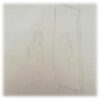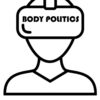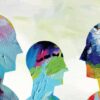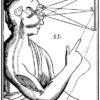Documentation

The Highest Point of Knowledge: Quentin Tarantino and the Poetics of Interdisciplinary Translation – Olga Efremova
The fifth session of the Transmission in Motion 2021-22 seminar series took place in an unusual setting: a Gather virtual town meeting set up to introduce the participants to an alternative “discursive space of connective and integrative dialogue” (Utrecht University 2022). Departing from the premise that “students with solid training in inter- and…
Read more
Laika Phone Home: Translating the Concept of “Postmemory” to Robotic Theatre – Olga Efremova
In the fourth installment of Transmission in Motion 2021-22 seminar series “Dramaturgy for Devices”, Maaike Bleeker and Marco Rozendaal invited us to analyze four dramaturgical concepts of mise-en-scène, performativity, presence and address (Utrecht University 2022). Reflecting as a part of the discussion on the previous seminars in the series made me wonder about the…
Read more
“Multisensory storytelling – Dancing by looking” – Lisa van den Burg
On December 6th, I met multi-sensory storyteller Grace Boyle in an online session of Meet the Makers. This initiative is part of Transmission in Motion, which is a research community that provides a platform for meetings, seminars, and presentations between researchers, artists, and students from across disciplines. Grace is the founder and director of the…
Read more
“Manipulation of the Senses, VR and Gender” – Andrina Imboden
In the Transmission in Motion seminar Meet the Makers: Grace Boyle on the 6th of December 2021, Lianne Toussaint moderated a talk with the multi-sensory storyteller Grace Boyle. This resulted in an inspiring discussion on the manipulation of the senses in art, virtual reality, and cross-modal correspondences, to name only a few of the topics….
Read more
“Opening Your Ears to the World Around You” – Rogier Hornman
What would have been an experimental set-up a decade ago, is now an ingrained praxis: seeing others, hearing others, while hovering my fingers over a touchpad to read a chat. This set-up was the stage for Grace Boyle and Lianne Toussaint at the Meet the Makers meeting on December 6th, 2021, organized by the workgroup…
Read more
“The Summoning of “Ghostware” Translating Media Archeology into Imaginary Media as a Tactic of Speculative Interfacing” – Olga Efremova
This reflection stems directly from my previous one titled Plato’s Back, a consideration of how the theory of affect can be instrumental in understanding the historical context and consequences of translating Plato’s work into German in the first decades of the 20th century. The reason for linking these two pieces is that both are informed…
Read more
“Grasping Theatre With Your Hands, Your Nose, and Your 31 Other Senses” – Selma Visscher
On December the 6th, as part of the Meet the Makers sessions, Grace Boyle spoke about her work as a multisensory storyteller. She states that human beings don’t have 5 senses, but up to (at least) 33. She talked about how this multisensory principle comes into being in her artistic work. In her performances, she…
Read more
“Joyce, Woolf and Beckett: Multisensory Storytellers avant la lettre?” – Eline Hadermann
On Monday 6 December, the members of the Dramaturgical Practices Course (theatre module) had the honor to meet the multisensory storyteller Grace Boyle. Boyle is the founder of ‘Feelies’, a London-based studio that creates multisensory XR content. With this project, she aims to debunk the Western belief that humans have only five senses, and attempts…
Read more
“Plato’s Back: Translating Greek philosopher’s ideas into “new politics of German stage”” – Olga Efremova
The second session of the Transmission in Motion 2021-22 series contextualized philosophical and cultural appropriation of Plato in German thought in the period leading to German industrialization and the rise of National-Socialism (Utrecht University 2021). Paul Ziche situated the translations and interpretation of Plato’s works against the backdrop of the publishing milieu of the time,…
Read more
“Specifying Modern Totality” – Martin Essemann
Two central questions were left at the end of today’s seminar on Plato and the rise of German Nationalism. One participant questioned the uniqueness of the relationship between modernism and German fascism: can equal connections and parallels not be drawn between other instantiations of totalitarianism and modernism? Either by looking at the rise and fall…
Read more
